“I owe a lot to Barclays but I’ve given everything possible in return”
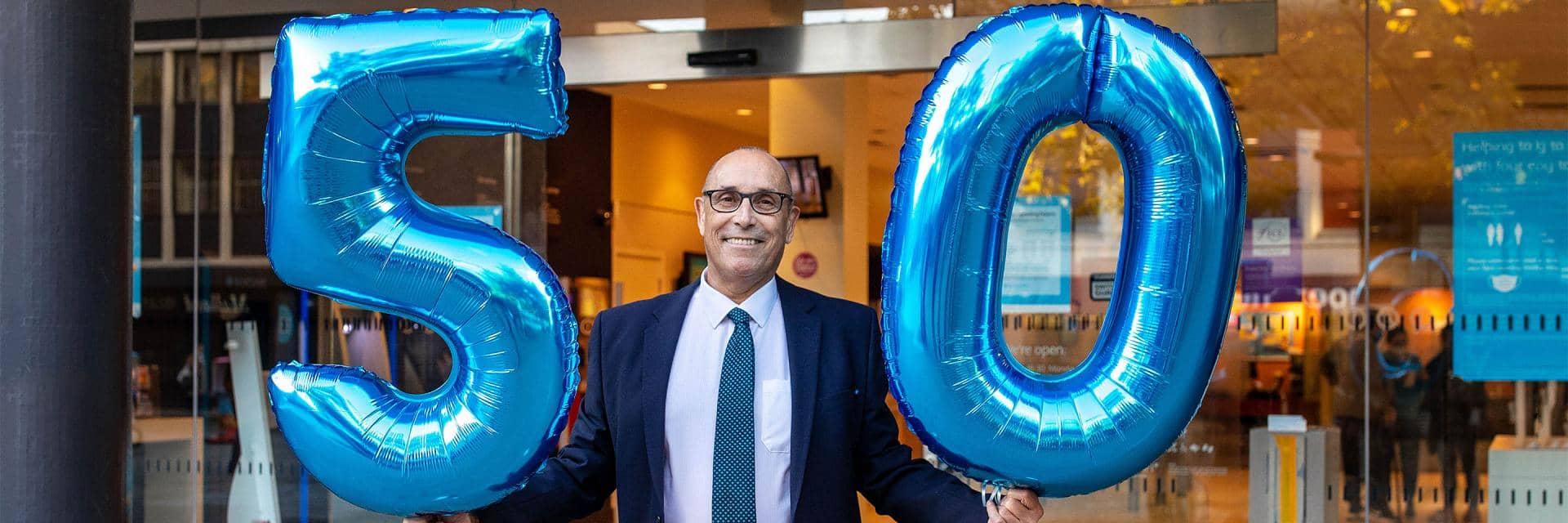
Culture
“I owe a lot to Barclays but I’ve given everything possible in return”
24 November 2021
What’s it like dedicating your entire professional life to Barclays? When Jim Seabrook started a junior role at the bank aged just 16, he had no idea it would lead to a career spanning five decades. The Business Manager reflects on memorable moments from his time at the bank – and explains why it’s the customers and colleagues that make the job.
“When I say to friends and family I’ve worked for Barclays for 50 years, a lot of people look at me like I’m bonkers,” says Jim Seabrook, who was only 16 when he started working at the bank. “But within those 50 years, I’ve had a good number of jobs, I’ve come across so many different people and dealt with thousands of businesses.”
Jim knew his family could not afford to support him through higher education, so he started looking for a job straight from secondary school. He thought about joining the police force or becoming a pharmacist, but then a visit to his local careers officer in Colchester set him on course into the world of banking.
“I hadn’t considered banking at all. In fact, I didn’t even have a bank account at that time,” he chuckles. “I started at a small branch in Kelvedon on 8 February 1971.”
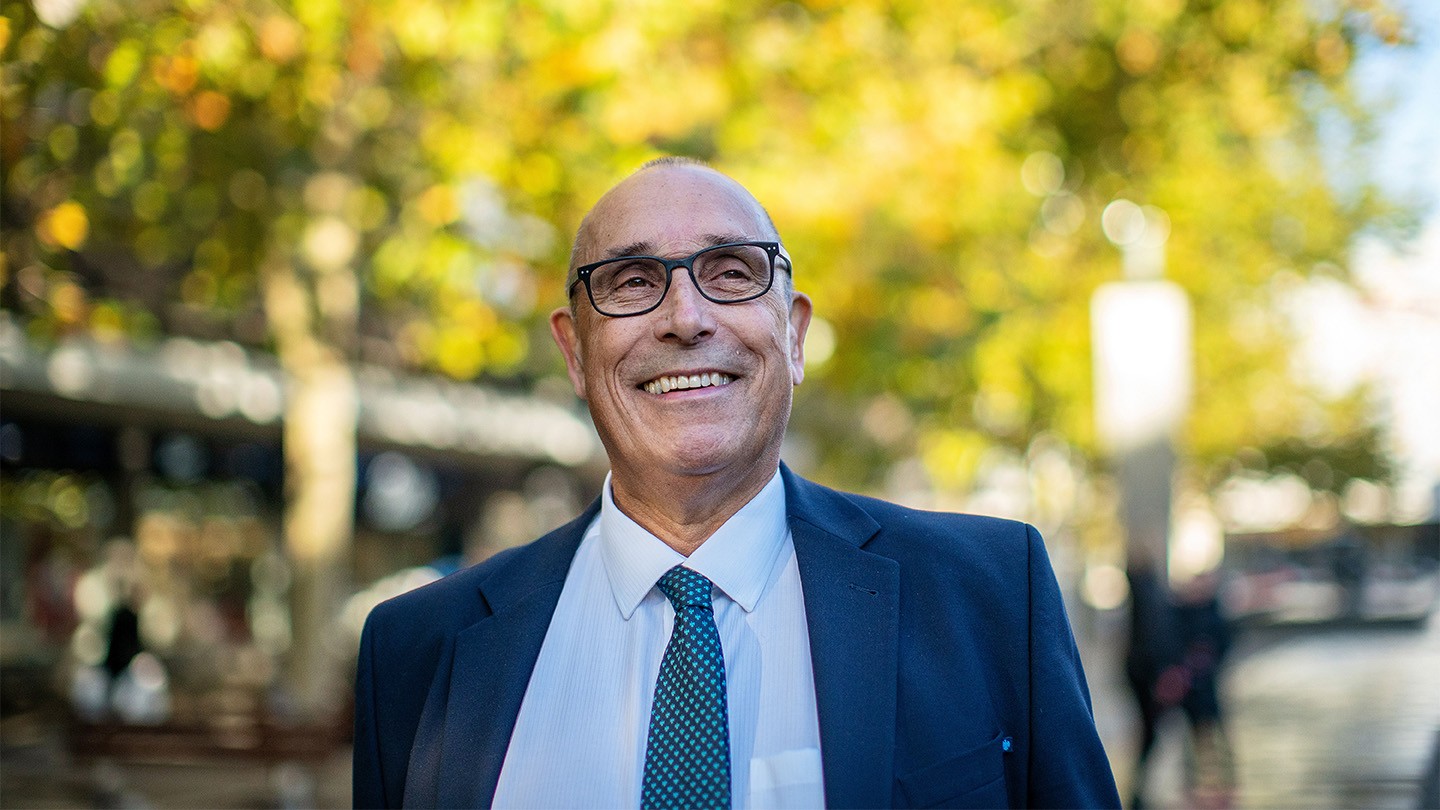
Jim’s five-decade career has seen him work with the bank in east London and Essex.
Barclays gave me a chance in the first place. It was just going to be a job at the start but it evolved into a career.
Barclays Business Manager
His early responsibilities involved making tea and delivering letters to the post office, but he was soon promoted to the role of cashier. “I began dealing with customers, and that’s never changed over the years. In those days, the only way a customer would be serviced was face-to-face in the branch and over the telephone, but that’s obviously changed considerably since then.”
How colleagues communicate with customers is just one of the many changes Jim has witnessed in his five decades at Barclays. He notes, for example, that his career has covered the entire period of the UK’s membership of the European Union, formerly known as the European Community: within his very first week, the country went through decimalisation in preparation to join.
“The country was going through decimalisation, preparing for going into the ‘Common Market’ as it was called,” says Jim. “Part of that process was changing currency from pounds, shillings and pence, as it was then, to pounds and pence. That first week I was there, everybody that was customer-facing was learning how to transact in pounds and pence. The staff were learning about the big changes that were happening at the time.”
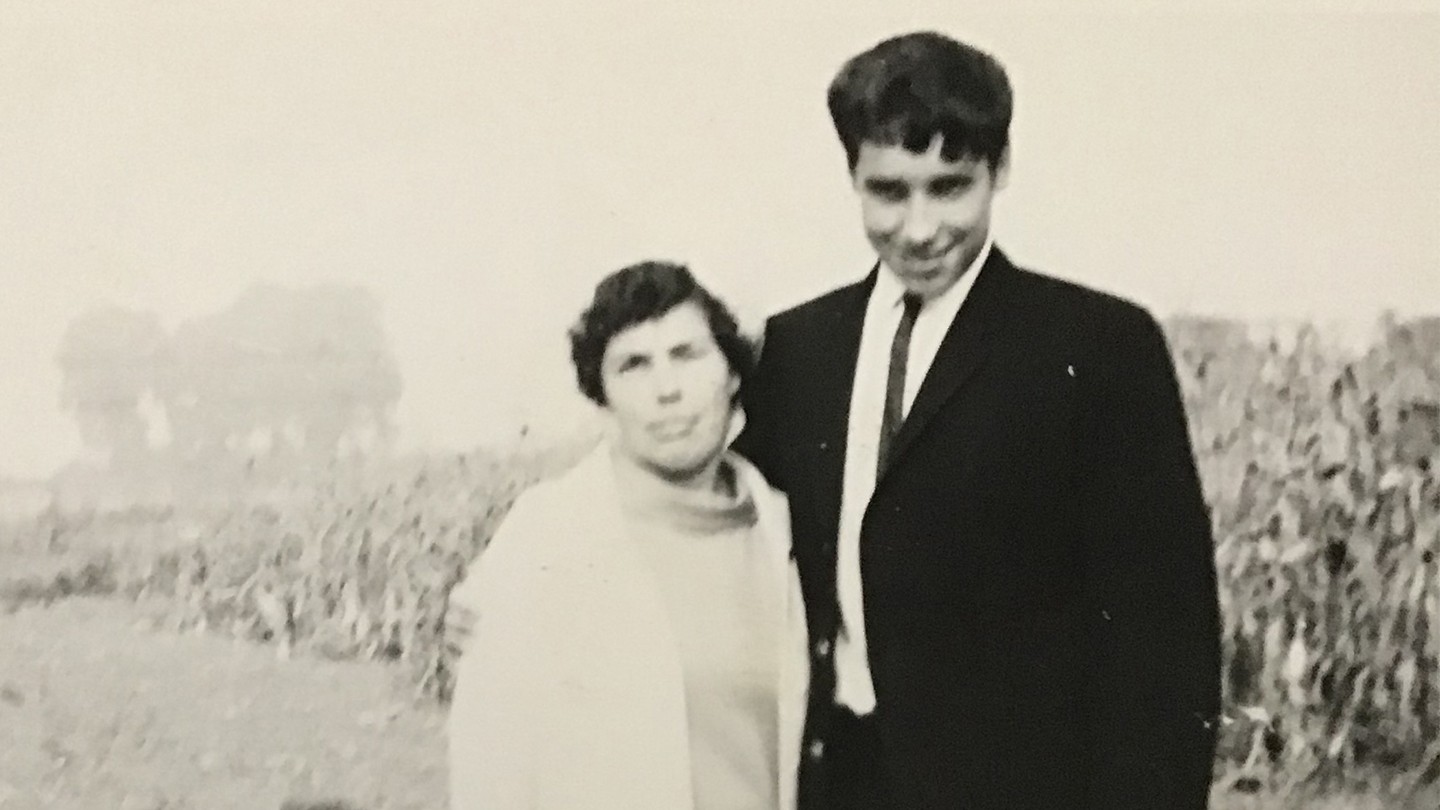
Jim, around the age of 16, with his mother, Grace Seabrook.
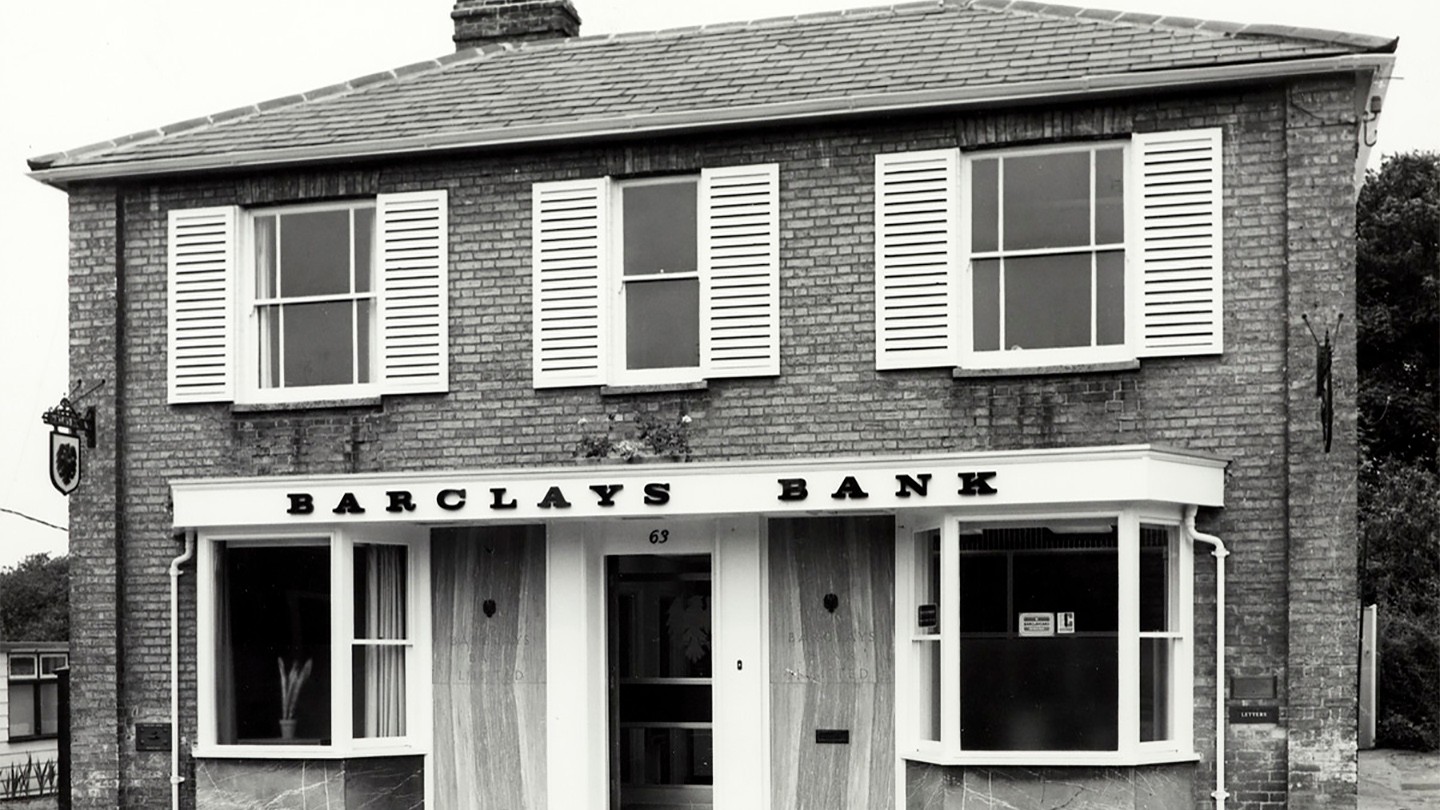
Barclays Kelvedon branch in 1971, where Jim started his career.
New technology which would transform banking was being introduced in the early days of Jim’s career. He learnt to use the Burroughs TC 500, one of the first computers that enabled the bank to take a revolutionary step from handwritten to automated bookkeeping. “Customers would come into the branch, pay in their cheques and credits and draw their cash – and the documentation was processed through the TC 500,” Jim says. “In those days, it was paper bank statements. It is total history compared to the online statements that we have today. That was also the early days of direct debits and automated standing orders.
“I didn’t know different at the time, but over the years everything has evolved so many times over. It’s all part of the evolution of Barclays – nothing stands still.”
“By hook or by crook, we kept Barclays open during the Great Storm”
Jim, now 67, has worked in 12 different branches and five offices across Essex and east London, and now looks after the bank's business clients in his area – but his focus has remained constant. “My concern is always the customer because without the customers, we haven’t got a business,” he says.
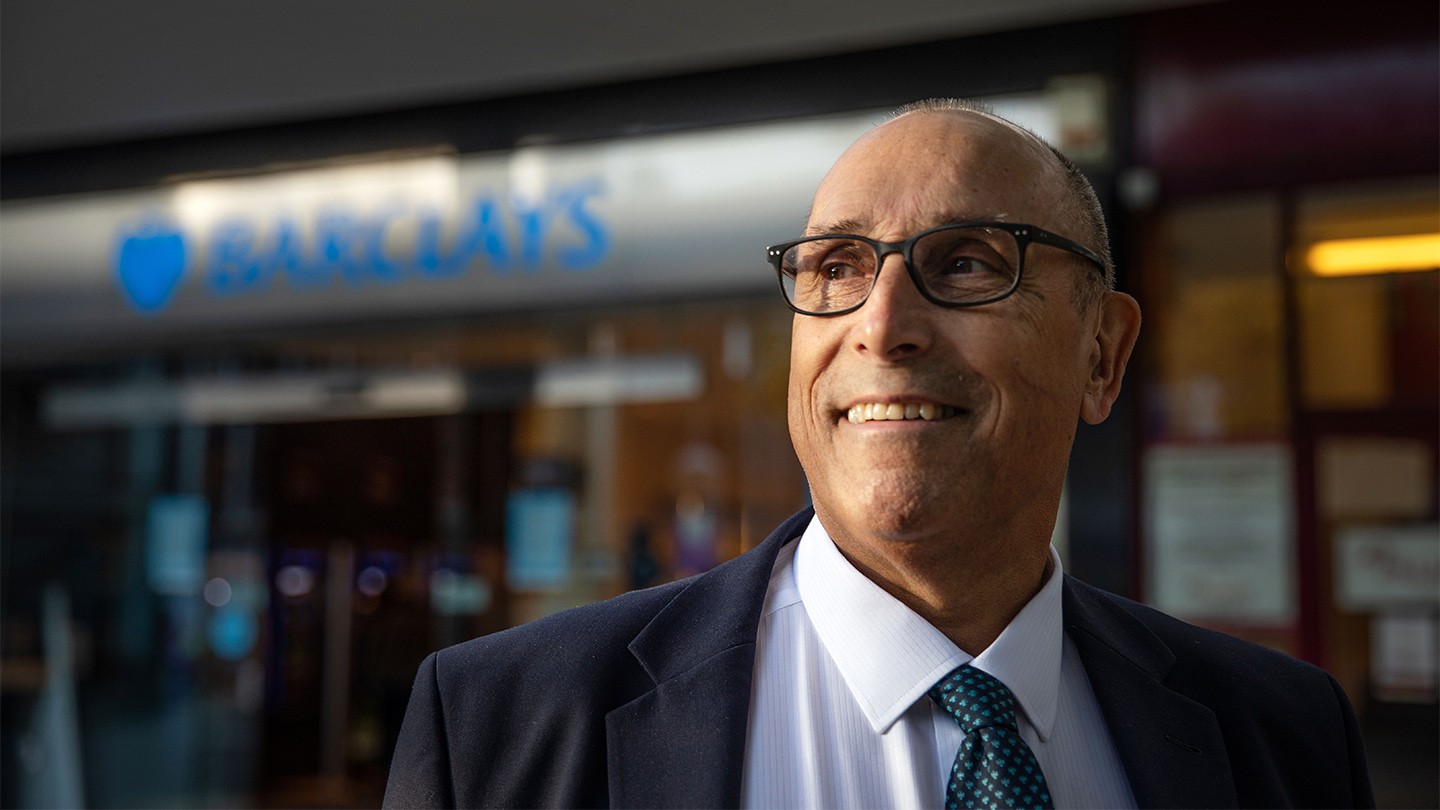
Jim hopes to spend his retirement in the garden, playing golf, helping his daughter to take care of her horse and bonding with his three-year-old granddaughter.
My concern is always the customer because without the customers, we haven’t got a business.
Barclays Business Manager
Looking back on some of the more memorable moments of his career, he recalls working as an Office Manager near London’s historic Spitalfields Market. “It was hustle and bustle in the mornings with a very busy fruit and vegetable market,” says Jim, remembering a very different picture to today’s fashion stores, street-food stalls and bars. “I’ve never seen so much cash. It was mental really, but it was what the area was all about. At certain times during the year, the safe where we stored the money wasn’t big enough to take it all.”
Later, he remembers keeping his branch open during Britain’s Great Storm of 1987 – the most destructive to hit the UK in nearly 300 years – when ferocious winds of up to 100mph caused widespread chaos throughout the south of England.
“There was a horrific wind that destroyed many buildings and brought down many trees,” he remembers. “At four o’clock in the morning, I got a call from the security room that the alarms were going off at the branch. So I got to Witham station in Essex to get an early train, but the station’s signs were swinging off their hinges with the fierceness of the wind and they announced there would be no trains. So I popped in my car and drove through floods, and avoided falling trees and turned over lorries.
“By hook or by crook, I got to the branch – and four out of 28 staff members had managed to get in. We liaised with a nearby branch and between us, we managed to open one of our counters for customers to use. Despite the horrendous things that were going on in the south of England, we managed to keep Barclays open.”
Jim also recalls studying three nights a week towards his banking exams in his early days at the bank during the 1970s – travelling back to his north Essex home on his Vespa scooter. “Even though it was quite new, the headlights kept letting me down,” he laughs. “So there was many a night I was pushing this flaming scooter home in the dark, guided by moonlight. The things I’ve done to get on at Barclays!”
“My satisfaction is the feedback you get from customers”
A more recent win in his current role as a Business Manager, he says, was helping a customer start and sell a taxi cab company. “A customer came to me about 15 years ago because he wanted to buy this black cab company. We were able to support him with a loan to buy it – and 18 months ago, he sold the business. He paid £30,000 for it and sold it for just over £3m. During COVID-19, black cabs in central London had gone through very difficult times, so his timing to sell was fantastic. He always thanks me for having the confidence in him.”
“My satisfaction with the job is the feedback you get from customers,” he says. “I always say every potential business is an acorn – not everyone grows into an oak tree but they all have the opportunity.”
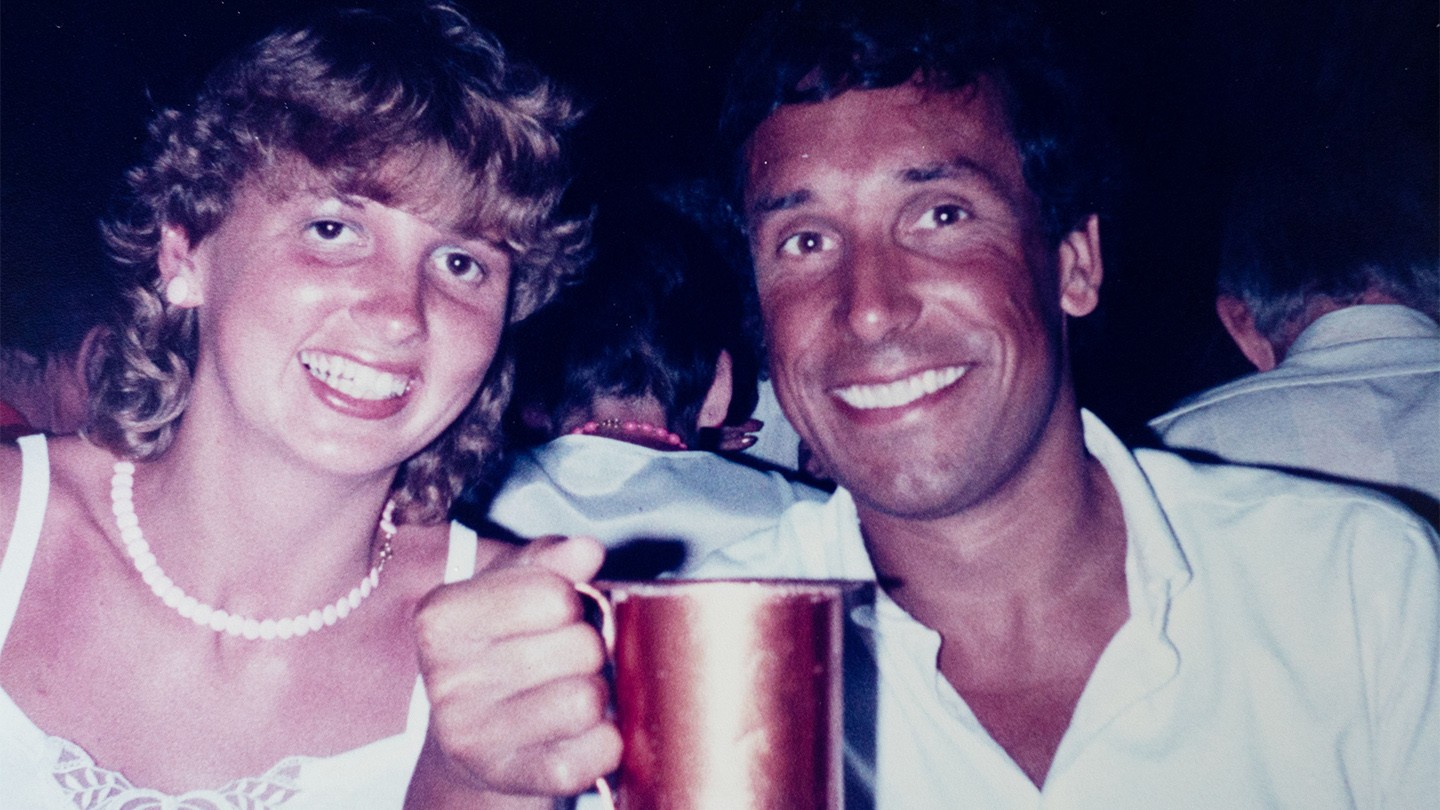
Jim and his wife, Jill Seabrook, photographed in the late 1970s.
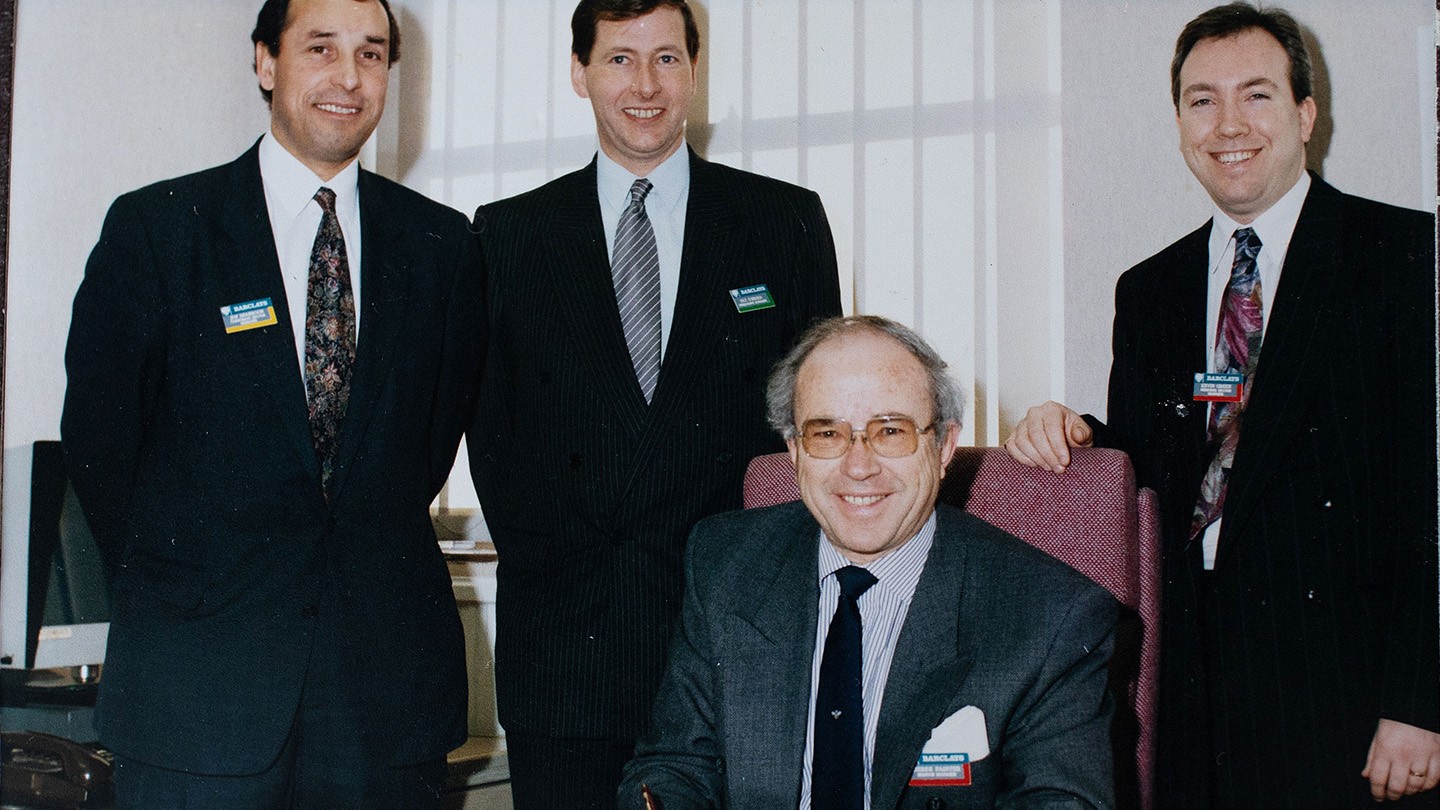
Jim with Pat O'Brien (Office Manager), Derek Painter (Branch Manager) and Kevin Green (Personal Sector Manager). Photographed at Barclays’ Rainham branch, Essex, in 1993.
It’s also the bank’s culture which Jim cherishes. He believes that it’s the people you work with that make a job. “Part of why I enjoyed working with the staff was that we had competitions for everything under the sun, like darts, tenpin bowling and five-a-side football. That was all part of getting to know the staff at other branches.”
Jim competed in squash, rugby and football competitions – and remembers his role in winning the semi-final for a national competition in veterans’ football.
“It got us into the final to play Barclaycard, which we got defeated on,” he says. “I’ll always remember one of the descriptions they put in the head office circular: ‘Seabrook soared like a salmon to head the winning goal in extra time’. To think that I could soar like salmon – that made me laugh.”
Now, as he celebrates his well-earned retirement, Jim says he looks forward to pottering around the garden, playing golf, helping his daughter to take care of her horse and, “best of all”, bonding with his three-year-old granddaughter. He has also been invited to work as Finance Governor at a local school, “which fulfils one objective of remaining locally active and contributing to the community”.
I owe a lot to Barclays but I’ve given everything possible in return.
Barclays Business Manager
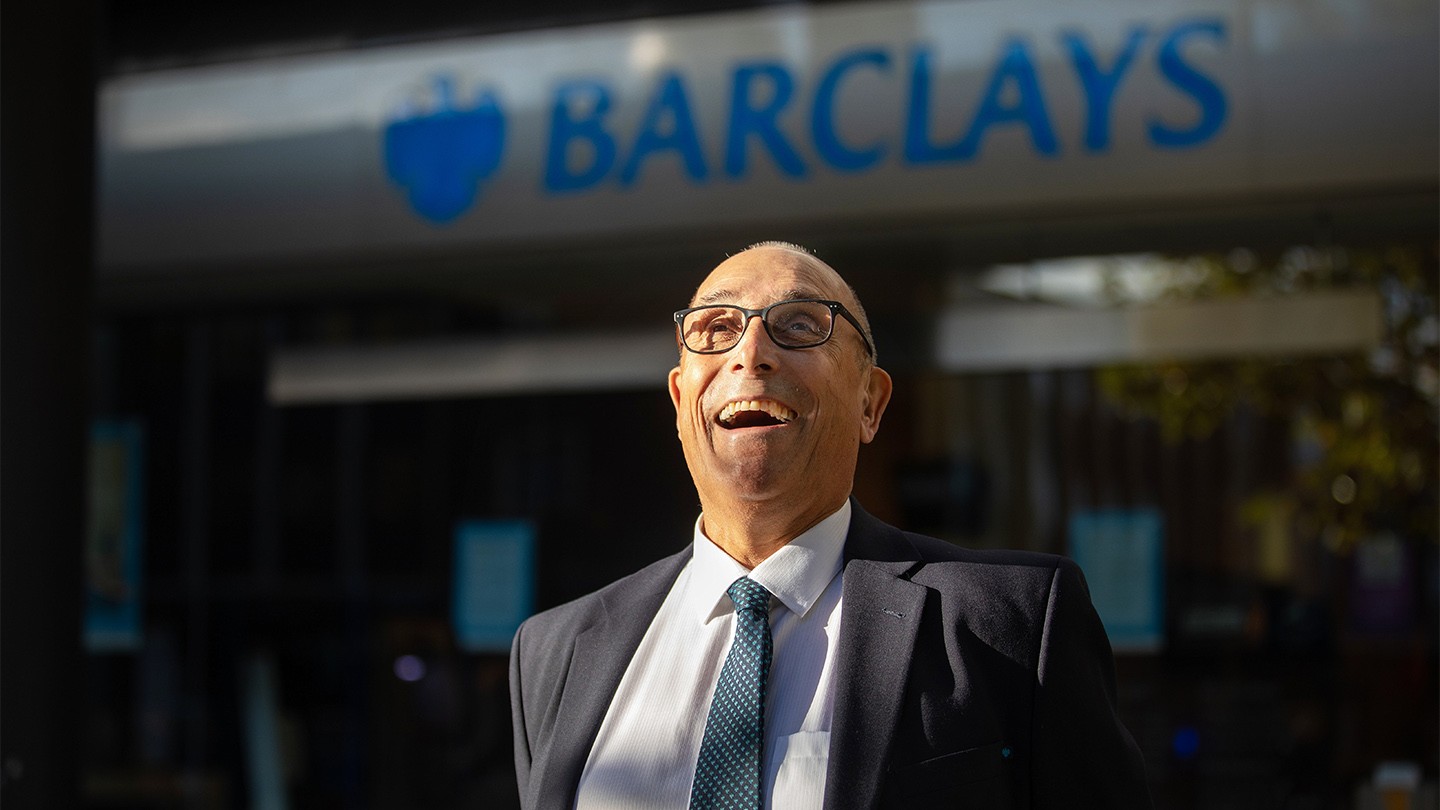
Jim says one of his favourite parts of his role is receiving feedback from customers.
“I cannot believe where 50 years have gone,” he says. “I’m facing an element of trepidation that these years of living and breathing Barclays will come to an end. I’ll miss my colleagues and customers greatly. But at this new crossroads in my life, I’m looking forward to what retirement will bring – and the time is right for me to pass the baton to younger managers.”
Asked what has kept him at one organisation all these years, Jim says without a doubt: loyalty. “Barclays gave me a chance in the first place. It was just going to be a job at the start but it evolved into a career. It’s got me the house I live in; it’s given me the income to support my kids, and to take the family on holiday; and the pension that I will eventually rely on. I owe a lot to Barclays but I’ve given everything possible in return.”